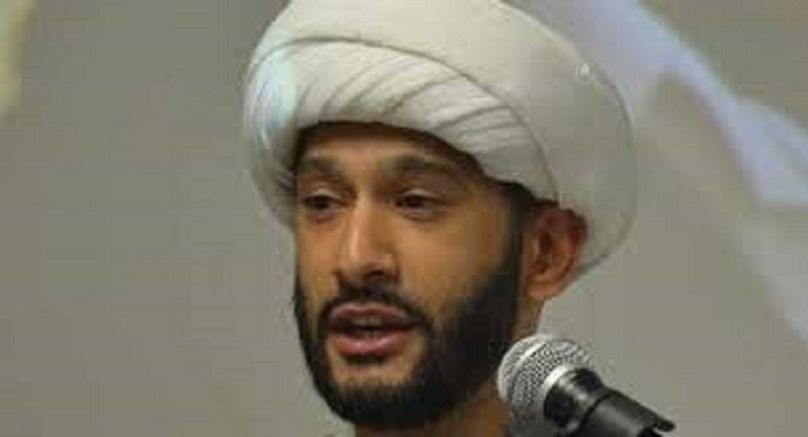New data from the UK’s police forces shows that hate crimes in British schools and colleges have more than doubled in three years. The time period for the study is not coincidental.
Data from the UK’s police forces released earlier this week shows that hate crimes in British schools and colleges have more than doubled in three years. The time period for the study is not coincidental; since the Brexit referendum in 2016, I have personally seen a huge spike in the number of parents and children coming to me because of hate crimes at school, including Islamophobic attacks.
Both we and our children breathe the same ideological air - even when it comes to the xenophobia and hate that has accompanied some aspects of the ongoing Brexit debate. These latest statistics cannot be isolated from other trends that we are seeing. According to research carried out by charity Show Racism the Red Card (SRTRC), 31% of young children think Muslims are taking over England while 37% of Britons surveyed by YouGov said they would support a political party that would reduce the number of Muslims in the UK.
As per Baroness Warsi’s insight, “Hostility to Muslims has ‘passed the dinner table test,’” so it is no wonder that children are exposed to this atmosphere and are replicating it in classrooms.
Hate crime is, of course, much broader than this. It can encompass gender and sexual orientation, as well as ethnicity and religion. But many of the incidents reported in schools were related to instances of racism and Islamophobia.
As a generation spends its formative years in this environment, there are serious consequences for how our society functions in the future, as well for the minorities living within it. This has even affected minorities’ self-image. The Institute of Social Policy and Understanding (ISPU), for example, found that 30% of Muslims in the US were now likely to believe that co-religionists are more prone to negative behaviour, more than any other faith group. And a Yaqeen Institute for Islamic Research report found that only one in three American children surveyed wanted to tell others that they are Muslim. Anecdotal evidence I have gathered suggests that these trends are happening in the UK too.
Of course, playground bullying is not on a par with premeditated, politically-motivated aggression between adults. It still matters though - and I believe our national curriculum is as much to blame as our broader environment.
Just as some minorities, such as the LGBT community, have successfully lobbied to be included in the school syllabus and had others’ understanding of them increase because of this, it is time for other communities to follow suit.
Teaching a child how to exist in a diverse society is arguably much more important than algebra - but our education system has its priorities out of order.
More education is particularly important when it comes to society’s perceptions about Muslims. There is systemic Islamophobia evident in much of the media coverage of Muslim-related issues. Journalists’ efforts to be nuanced and balanced when discussing, for example, terrorism committed by those of Muslim background are likely to be lost on children and young people who naturally view things in simplistic, black and white terms. Children need to be coached on how to navigate the lies of a “posttruth” world, something argued by Matthew d’Ancona in his seminal work on living in a “post-truth” society.
We also need a syllabus that can challenge the idea of race as a default for human categorisation. It is now a well-accepted fact that the scientific idea of race was created as a means of subjugation and has been a social construct all along. Scholars like Shashi Tharoor have demonstrated how it was applied by the British in colonial-era India to divide “imprecisely fuzzy communities” for the purpose of creating factionalism. Moving to a post-racial society takes effort and an education system which explicitly aims to achieve that goal.
There also needs to be a weeding out of any subtle racism that is an inevitable result of an overly Western-centric syllabus. This isn’t racism with a capital “R” but it does prime children’s expectations and biases at an impressionable age, leading them to embrace more hard-line ideas later in life.
The history syllabus, for example, often focuses purely on British history, with little or no acknowledgement or study of the UK’s broader interaction with the world or the crimes of the British Empire. Contrast this with Germany, for example, where schoolchildren are handed comic books teaching them about the darker chapters of their country’s past.
Beyond the history syllabus, there is a need for our curriculum to be accurate and, where required, international. Other cultures have contributed to our understanding of everything from maths to sociology. Minimising or denying that fact is sowing the seeds of supremacism in the hearts of our children.
At a political level, we need to set a clear legal definition of Islamophobia as a minimum. It is unfair to ask teachers to monitor and report something that is defined in subjective and situational ways, depending on the opinion of individuals. Legal definitions exist for a reason, and Islamophobia and other types of racism are no different.
We also need our entire political culture to change. Senior politicians have all too often made controversial comments about minorities, only for them to brushed off as strong, authentic opinions. But it is time we were all more careful about what we say. Our children are listening.
Sheikh Jaffer Ladak is a London-based Islamic scholar and author
_________
Are you a recognised expert in your field? At Euronews, we believe all views matter. Contact us at view@euronews.com to send pitches or submissions and be part of the conversation












